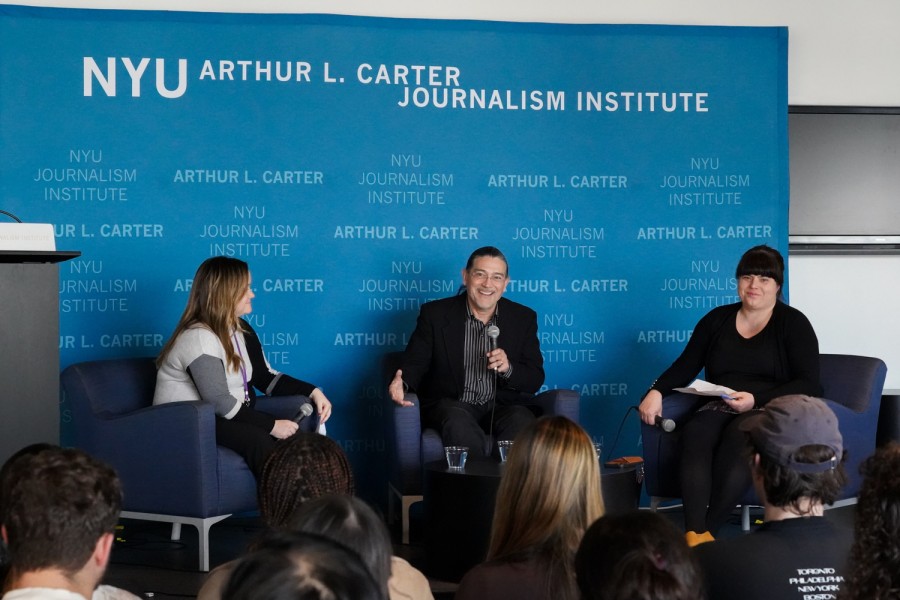US Census director on how to count 330 million people
Census Bureau director Robert Santos visited two NYU schools to speak about his experience running the 2020 census, and share what changes the bureau is making.
Robert Santos, the director of the U.S. Census Bureau, spoke at an event hosted by NYU’s journalism department on Wednesday. (Qianshan Weng for WSN)
March 30, 2023
Director of the U.S. Census Bureau Robert Santos spoke to students and faculty at NYU on Wednesday about how college students and other young adults may be underrepresented in the U.S. Census. Santos, who became the bureau’s director in January of last year, said that the pandemic made it even more difficult to count students — but added that communication with universities across the country, including NYU, improved this representation.
The U.S. Census, which occurs once every 10 years, helps to determine the allocation of government funding for individual states and communities, and is also used to divide states into congressional districts. Santos, who visited both the School of Global Public Health and the Arthur L. Carter Journalism Institute, said that the bureau faced added challenges when compiling the 2020 census, in large part due to COVID-19. However, he added that the pandemic also provided the bureau with new ways to improve the questionnaire.
“It’s always challenging to get to young adults, and persuade them to engage in their civic engagement duties,” Santos told a crowd of around 25 at the journalism institute. “Because of the COVID-19 pandemic, a lot of students had to leave their dorms, or leave their off-campus housing to go back home and hunker down, and that provided some real challenges for us.”
Santos said that overcounting of some groups and undercounting of others has always presented difficulties when forming the census. He hopes that a new initiative, which will take public input on how to best access underrepresented groups into account, will help minimize this issue in the future.
“It turns out that there are historically difficult populations to get to,” Santos said. “It’s a large list, obviously, but historically it has been Latinos, African Americans, Native Americans, American Indians and Alaskan Natives — especially those with tribal lands — renters, more vulnerable populations — those are the types of folks.”
During the 2020 census, Santos co-chaired a task force created to investigate the challenges the bureau faced. Santos criticized the involvement of former president Donald Trump’s administration in the census process, calling the move a “bombshell,” and saying that he believed it would be “one of the most flawed censuses in history.”
According to documents obtained by NYU’s Brennan Center for Justice, the Trump administration attempted to influence the 2020 census to favor the Republican party.
The U.S. Supreme Court blocked an attempt by the administration to add a question regarding citizenship to the survey in June 2020, and, in July, Trump released a public memo calling for undocumented immigrants to be excluded from the count that is used to divide congressional districts. The White House also asked for the census data to be completed five months before the bureau requested, which Santos criticized at the time.
Later, in March 2022, an analysis of the 2020 census showed that it retained the quality of past census data in terms of national count, despite a less accurate counting for some demographics.
“Today’s results show statistical evidence that the quality of the 2020 Census total population count is consistent with that of recent censuses. This is notable, given the unprecedented challenges of 2020,” Santos said in a press release in 2020. “But the results also include some limitations — the 2020 Census undercounted many of the same population groups we have historically undercounted, and it overcounted others.”
Correction (April 5): A previous version of this article made incorrect references to Santos’ response to a question about the Trump administration’s involvement in the execution of the 2020 census. The article and its headline have been updated. WSN regrets the error.
Contact John Kim at [email protected].
























































































































































